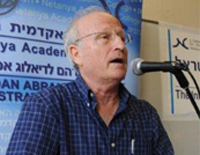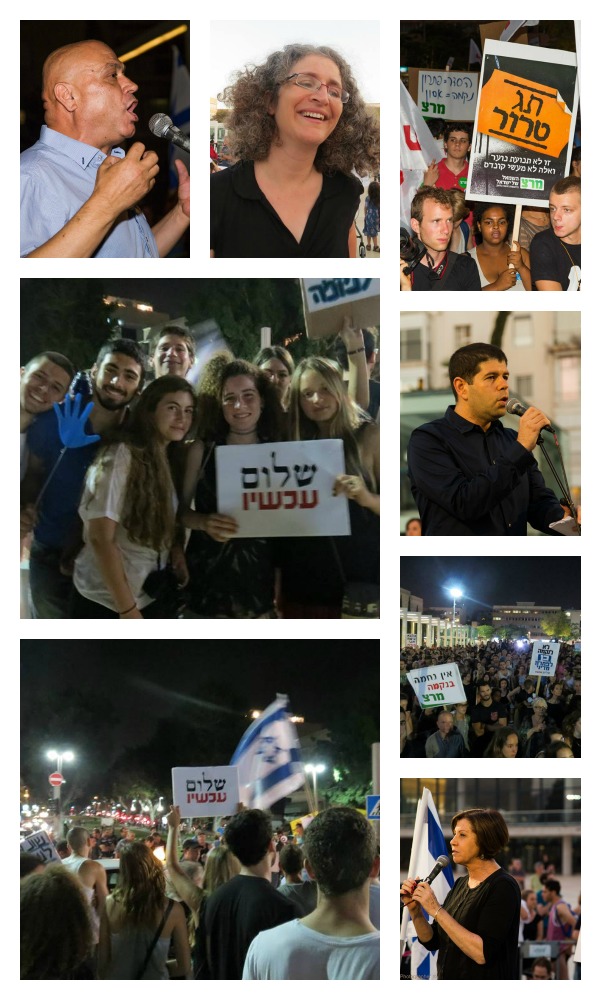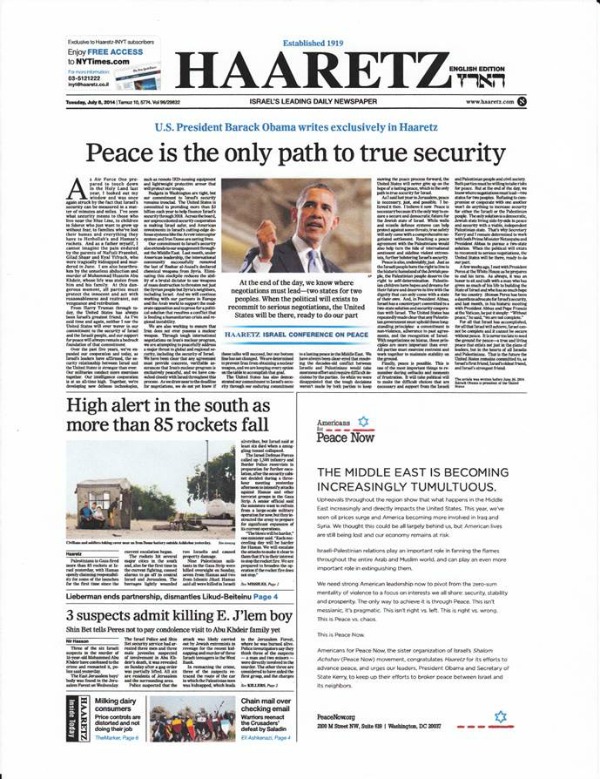Update:
Having urged a ceasefire for the past week, APN was excited at the news of an agreement Monday night, and then
deeply disappointed when Hamas and other Palestinian factions in the Gaza Strip rejected it and intensified their
rocket fire. Now that the Egyptian ceasefire initiative has collapsed, We must redouble our efforts to urge for a
credible ceasefire agreement to prevent further bloodshed and devastation and to clear the path for leaders to
pivot from war to peace talks.
We therefore ask
once again for our supporters to write to President Obama and ask him to use his influence with other world
leaders to continue to work for a ceasefire – one which will lay the groundwork for resumed negotiations
leading to an Israeli-Palestinian peace agreement.
 These are difficult and painful times. Fear and violence have overtaken both Israelis and
Palestinians. Rockets from Gaza are threatening Israelis in every corner of the country, sowing terror and
anger; intentional attacks on Israeli civilians by Gaza-based Palestinian terrorists should rightfully be
condemned. Israeli military retaliation, irrespective of its intended targets, is causing destruction, death,
and injury across Gaza, including the deaths (so far) of scores of innocent civilians, among them many children.
These are difficult and painful times. Fear and violence have overtaken both Israelis and
Palestinians. Rockets from Gaza are threatening Israelis in every corner of the country, sowing terror and
anger; intentional attacks on Israeli civilians by Gaza-based Palestinian terrorists should rightfully be
condemned. Israeli military retaliation, irrespective of its intended targets, is causing destruction, death,
and injury across Gaza, including the deaths (so far) of scores of innocent civilians, among them many children.
In the face of this crisis, all of us who care about Israel feel terribly powerless. Powerless to stop the violence
and suffering. Powerless in the face of the simplistic, false narrative that military force - combined with a
metaphorical Iron Dome - can provide Israel real security. Powerless, when we know that the only thing that can
provide Israel security is a negotiated agreement that ends the Israeli-Palestinian conflict.
But we are only powerless if we choose to be. I urge you: Do not be powerless – Take action. We can and must tell the Obama
Administration: Work for a Ceasefire NOW.
 by APN's summer intern Hannah Ehlers
by APN's summer intern Hannah Ehlers
 These are difficult and painful times. Fear and violence have overtaken both Israelis and
Palestinians. Rockets from Gaza are threatening Israelis in every corner of the country, sowing terror and
anger; intentional attacks on Israeli civilians by Gaza-based Palestinian terrorists should rightfully be
condemned. Israeli military retaliation, irrespective of its intended targets, is causing destruction, death,
and injury across Gaza, including the deaths (so far) of scores of innocent civilians, among them many children.
These are difficult and painful times. Fear and violence have overtaken both Israelis and
Palestinians. Rockets from Gaza are threatening Israelis in every corner of the country, sowing terror and
anger; intentional attacks on Israeli civilians by Gaza-based Palestinian terrorists should rightfully be
condemned. Israeli military retaliation, irrespective of its intended targets, is causing destruction, death,
and injury across Gaza, including the deaths (so far) of scores of innocent civilians, among them many children.




 Israeli strategic affairs expert Yossi Alpher, who authors Hard Questions Tough Answers, APN's
weekly news analysis, was our guest on Thursday, July 3rd, for a briefing call on the current
Israeli-Palestinian security crisis and its repercussions. Since Thursday, Alpher's presentation has been
overtaken by events; we have included here the still relevant Q&A session.
Israeli strategic affairs expert Yossi Alpher, who authors Hard Questions Tough Answers, APN's
weekly news analysis, was our guest on Thursday, July 3rd, for a briefing call on the current
Israeli-Palestinian security crisis and its repercussions. Since Thursday, Alpher's presentation has been
overtaken by events; we have included here the still relevant Q&A session.
